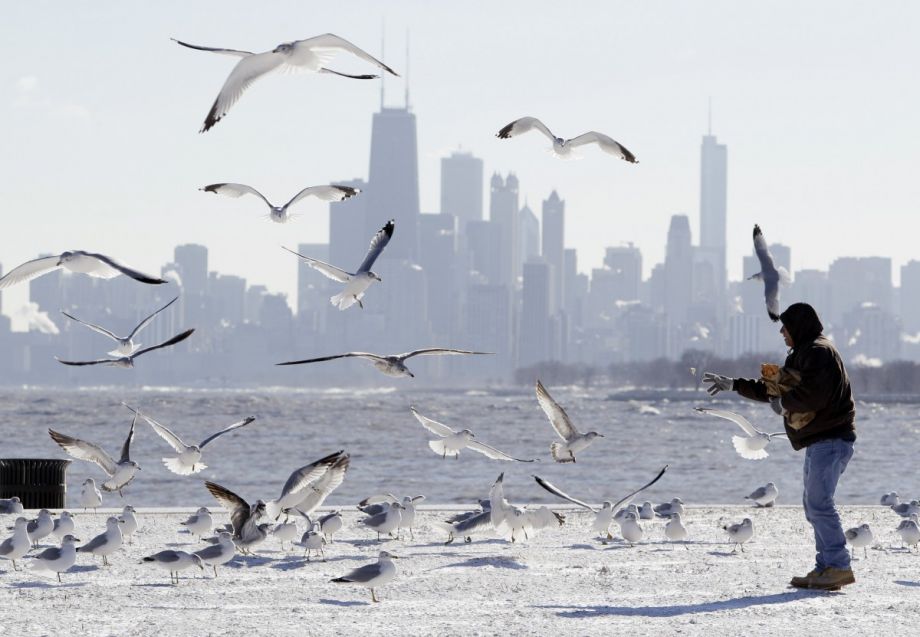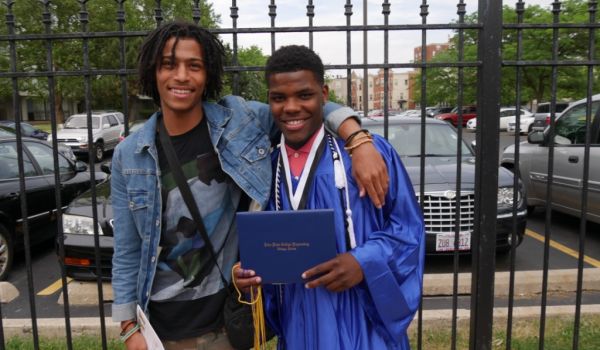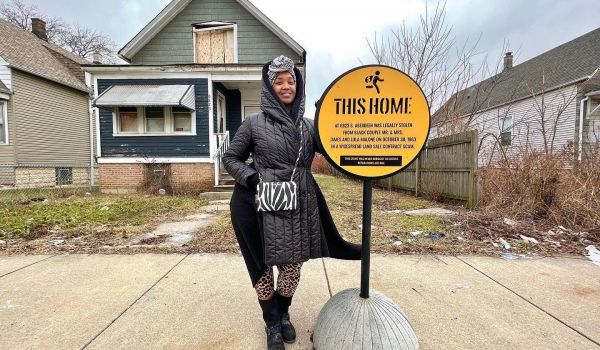Chicago could become the latest city to have a bird-safe buildings law on the books, the Chicago Tribune reports.
A city ordinance introduced by Alderman Brian Hopkins would require that new and renovated buildings not be sheathed in glass from the ground to 36 feet up, or if the building must use glass, that it is bird-safe. Another item in the ordinance would require nonessential interior lighting automatically shut off between 11 p.m. and sunrise.
Somewhere between 365 million and one billion birds die every year from crashing into buildings, and researchers say that Chicago is in the top five U.S. cities for bird deaths during the migration season. Birds either see a reflection and get confused, or they see indoor potted plants—and get confused. At night, birds are attracted to lighted buildings. The resulting crashes are often lethal, but simply adding etching, frosting, or screens is usually enough to deter birds from flying into the glass during the day, and shutting off lights at night solves the problem after-hours—not to mention the energy it saves.
In Chicago, the proposed ordinance would not apply to detached homes, townhouses, or residential buildings up to six units. However, the Fish and Wildlife Service says that fewer than 1 percent of bird-window collisions occur at high rises, and that 56 percent of crashes occur at one- to three-story buildings. The rest occur at urban and rural residences, by which the FWS presumably means detached homes.
The Building Owners and Managers Association of Chicago, which represents most downtown commercial buildings, may oppose the part of the rules that apply to renovating existing buildings, Michael Cornicelli, executive vice president of the association, told the Tribune, adding that it’s less costly to incorporate such measures into new construction.
Cornicelli added that the group already cooperates with a voluntary initiative called Lights Out Chicago that encourages managers of high-rise buildings to turn off lights during migration season. The program, managed by the Chicago Audubon Society, has saved thousands of bird lives and reduced building energy costs, the society says.
San Francisco and Toronto have bird-safe building laws similar to those proposed in Chicago, mostly because of Canada’s Fatal Light Awareness Program, which developed bird-friendly development guidelines that have been used as models. Nationally, Congressman Mike Quigley, also a Chicago resident, introduced a similar bill in the House, which would apply to buildings built, purchased or renovated by the General Services Administration, the federal government’s landlord.
Quigley, who is part of the Animal Protection Caucus and has a 100 percent policy rating with the Humane Society, has introduced the same bill four previous times since 2010, the Tribune said. Because Democrats control the House, the bill’s chances are now improved, aides told the Tribune. Rep. Morgan Griffith (R-VA) co-introduced the legislation, and Steve Cohen (D-TN) and Lee Zeldin (R-NY) are cosponsors.

Rachel Kaufman is Next City's senior editor, responsible for our daily journalism. She was a longtime Next City freelance writer and editor before coming on staff full-time. She has covered transportation, sustainability, science and tech. Her writing has appeared in Inc., National Geographic News, Scientific American and other outlets.
Follow Rachel .(JavaScript must be enabled to view this email address)
















